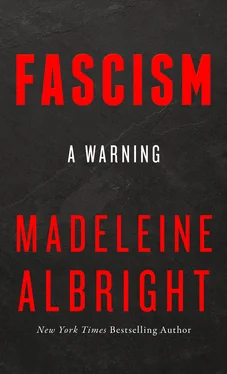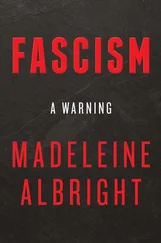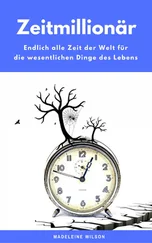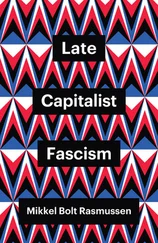In traveling around the United States to discuss this book, I have shared my thoughts with thousands of people from every region. The experience was bracing—and a little odd. In Las Vegas, my appearance coincided with a convention of the wine and spirits industry. Behind the table at which I signed books for both the sober and the tipsy, a banner read: MAKE WHISKEY GREAT AGAIN. Despite all the attention given to the “me too” movement, a gentleman in Miami rose to his feet and said, “I’m ninety years old, but I haven’t lost my eyesight, and you’re a good-looking gal.” An article in the Washington Post referred to me as “a lovable feminist granny.” By contrast, a man in Brooklyn who heard me speak told a reporter later that I was a “war mongering ghoul,” this according to a Russian newspaper. At every stop, when I opened the floor to questions, a hundred hands flew up.
Overall, I found the national mood to be cranky; and it’s no wonder we’re on edge. Our political parties are at war with one another and fracturing internally at the same time. We have a president who considers it good politics to drive our citizens apart and whose approach to world affairs prompts many among us to cringe while others stick out their chests. Common ground is hard to find; instead, we are at each other’s throats. Even now, with the volume on my television turned low, I can hear the yelling.
In this book, I offer both a historical perspective and a global one. Many of the trends we now see were also evident in much earlier decades. This leads to some important questions: What lessons can we derive for the future from the horrors perpetrated long ago by the followers of Mussolini and Hitler? Where do we draw the line between the simple abuse of authority and the gross misrule we call Fascism? How can we explain the alarming rise and contagious spread of anti-democratic trends? Is the hitherto unshakable bond between Europe and the United States unraveling and, if so, can it still be mended? What must we do to ensure the preservation of freedom for our children and those who will come after?
My farm provides a good vantage point from which to ponder such topics. Like a democracy at work, the property is vulnerable both to sudden storms and to the encroachment of termites, pests, viruses, and weeds. There are predators in the woods, reptiles on the ground, and—overhead—occasional bolts of lightning. Survival depends on adherence to a rigorous schedule of maintenance. Yet the farm is also resilient, having endured for generations, its evergreens still majestic and its foundation, though set in the rock of an earlier era, satisfyingly firm.
In recent years, we have all become familiar with the counterterrorism mantra: “See something, say something.” In the pages that follow, I propose an added exhortation— do something. What that something might be is for each of us to decide in accordance with our opportunities and talents, but it begins by pushing back harder against the debilitating cancer of cynicism.
Fascist attitudes take hold when there are no social anchors and when the perception grows that everybody lies, steals, and cares only about him- or herself. That is when the yearning is felt for a strong hand to protect against the evil “other”—whether Jew, Muslim, black, so-called redneck, or so-called elite. Flawed though our institutions may be, they are the best that four thousand years of civilization have produced and cannot be cast aside without opening the door to something far worse. The wise response to intolerance is not more intolerance or self-righteousness; it is a coming together across the ideological spectrum of people who want to make democracies more effective. We should remember that the heroes we cherish—Lincoln, King, Gandhi, Mandela—spoke to the best within us. The crops we’ll harvest depend on the seeds we sow.
I look once more through the window and can see that the winter sun is now high in the sky. The air outside is warming and it has occurred to me that there might be value in taking a long walk, gathering my thoughts, then initiating a discussion on the herd instinct with my four-legged friends.
Thank you in advance for your interest in this book.
MADELEINE ALBRIGHT
LOUDOUN COUNTY, VIRGINIA
DECEMBER 2018
ONE

A DOCTRINE OF ANGER AND FEAR
ON THE DAY FASCISTS FIRST ALTERED THE DIRECTION OF my life, I had barely mastered the art of walking. The date was March 15, 1939. Battalions of German storm troopers invaded my native Czechoslovakia, escorted Adolf Hitler to Prague Castle, and pushed Europe to the threshold of a second world war. After ten days in hiding, my parents and I escaped to London. There we joined exiles from all across Europe in aiding the Allied war effort while waiting anxiously for the ordeal to end.
When, after six grueling years, the Nazis surrendered, we returned home with high hopes, eager to build a new life in a free land. My father continued his career in the Czechoslovak Foreign Service and, for a brief time, all was well. Then, in 1948, our country fell under the control of Communists. Democracy was shut down and once more my family was driven into exile. That Armistice Day, we arrived in the United States, where, under the watchful eyes of the Statue of Liberty, we were welcomed as refugees. To protect us, and to make my life and those of my sister, Kathy, and brother, John, seem as normal as possible, my parents did not tell us what we would learn only decades later: that three of our grandparents and numerous aunts, uncles, and cousins were among the millions of Jews who had died in the ultimate act of Fascism—the Holocaust.
I was eleven when I came to the United States with no goal more ambitious than to become a typical American teenager. I ditched my European accent, read stacks of comic books, glued my ear to a transistor radio, and became stuck on bubble gum. I did everything I could to fit in, but I could not escape knowing that, in our times, even decisions made far away could spell the difference between death and life. On entering high school, I started an international affairs club, named myself president, and provoked discussions about everything from Titoism to Gandhi’s concept of satyagraha (“The Force which is born of Truth and Love”).
My parents cherished the freedoms we found in our adopted country. My father, who quickly established himself as a professor at the University of Denver, wrote books about the perils of tyranny and worried that Americans were so accustomed to liberty—so “very, very free,” he wrote—that they might take democracy for granted. After I began a family of my own, my mother called each Fourth of July to confirm that her grandchildren were singing patriotic songs and had been to the parade.
There is a tendency among many in the United States to romanticize the years just after World War II—to imagine a time of sky-blue innocence when everyone agreed that America was great and each family had a reliable breadwinner, the latest appliances, children who were above average, and a rosy outlook on life. In fact, the Cold War was a period of unceasing anxiety in which the lingering shadow of Fascism was darkened by another kind of cloud. In my teenage years, due to atomic tests, the radioactive element strontium 90 was found in babies’ teeth at fifty times the natural level. Virtually every town had a civil defense warden urging the construction of backyard fallout shelters stocked with canned vegetables, Monopoly boards, and cigarettes. Children in big cities were issued metal tags, embossed with their names, for identification should the worst happen.
Читать дальше













